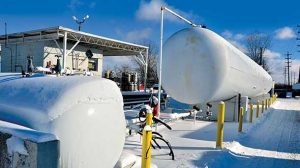Evaluate your interruption-of-service protocol
Winter has arrived. As every propane marketer knows, when the temperatures drop, the frequency of interruption of service goes up. Use this thought exercise to evaluate how prepared you are for interruption of service, including out-of-gas calls, this winter.

When the temperatures drop, the frequency of interruption of service goes up. Photo by Kevin Yanik
Following the proper protocol on interruption of service and out-of-gas calls will help your staff resolve these scenarios safely and effectively, and your company will have the documentation it needs to maintain compliance and reduce liability. Follow this checklist to evaluate your company’s interruption-of-service protocol:
Have policies and procedures. What is your policy in respect to interruption of service, and how do you handle out-of-gas calls? Do you have a written script for customer service representatives to use? What if the call is after hours? What procedure do your drivers follow? Do they complete a leak check before or after fuel is added? Do they lock out the tank if the leak check fails?
Provide adequate training. Have all of your customer service representatives been trained properly to handle interruption of service? Do your drivers and service technicians understand how to correctly perform and document these situations?
Correctly document your work. Is your team correctly documenting the service? All of us have heard it: If it’s not documented, it’s not done. This is especially true in the propane industry because 50 percent of propane accidents are caused by do-it-yourself homeowners. Propane safety documentation is your legal protection in the event of a catastrophic event. Documentation done right will protect your company and the individual performing the work.
So, how did you do? Does your company’s protocol for interruption of service match up with all of the elements listed above? Proper safety protocol is crucial to ensure that these scenarios are taken care of efficiently. That way, you can protect your customers and your company while maximizing your time.
Eric H. Leskinen is the executive vice president at P3 Propane Safety.
















